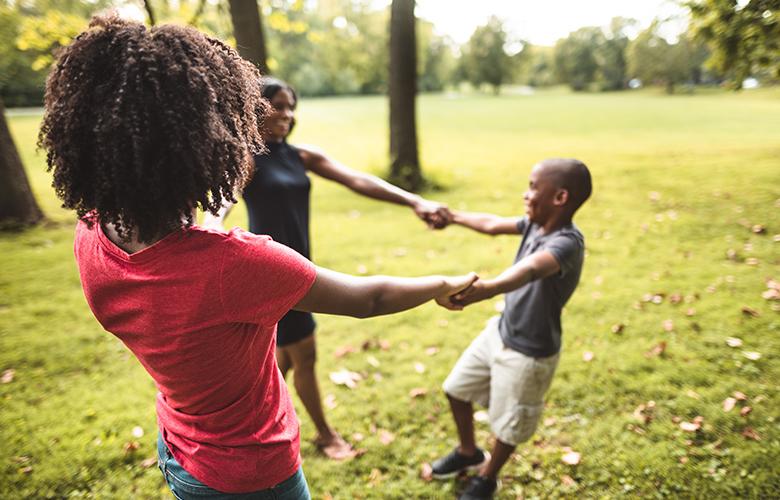
If someone asks me for parenting advice, I tell them about the Positive Youth Development (PYD) approach to parenting. Many of us working in the international youth development field are familiar with the PYD Model, which seeks to provide youth with the following:
1. Assets – Skills and resources
2. Agency – Confidence to make decisions and set goals
3. Contribution – Ability to contribute positively to their lives and communities
4. Enabling environment – A supportive environment
Assets and Agency
Across EDC youth programs, we focus on developing youth skills and competencies—assets—including literacy, numeracy, and life skills, but we also emphasize agency. For example, we help youth develop skills to research and negotiate their own internships, which also helps them develop job-seeking skills.
As parents, I think we often unintentionally hinder our children in gaining skills and agency. Sometimes, it is easier to tie their shoe laces for them rather than let them do it themselves. But if we do for them what they are able do for themselves, we are doing them a disservice. So as we support our children in gaining skills and developing assets, we must ensure we are also developing their agency—a true understanding of their own capabilities.
Contribution
We are neurologically hardwired to be connected with one another. We each need purpose and connections to other human beings. In the absence of a purpose or of being seen and valued by others, we feel lost and disengaged. PYD programs develop teamwork and leadership competencies by establishing training cohorts in which youth develop relationships with one another and encourage each other as they try new things. In many programs, youth also participate in civic and community engagement activities and opportunities.
Likewise, in our homes, we should provide our children with activities that foster a sense of purpose and contribution to their home and family. We should also think about how to encourage our children to contribute to their schools and communities. In both our PYD programs and our homes, we build bridges to meaningfully connect youth and children to their families and communities.
Enabling Environment
In our youth development programs, and in schools, communities, and the workplace, we aim to create safe learning and earning environments, provide access to youth-friendly health and social services, and link youth to the larger community and supports available to them.
As parents, our job is also to create and foster a supportive and nurturing environment for our children. We need to ensure our children have access to healthy relationships and good role models, a good support network, and safe learning environments.
What are your thoughts on applying Positive Youth Development principles to parenting?
Nalini Bajaj Chugani is a gender and youth international technical advisor. Her expertise is in youth workforce development; education and training; local capacity building; and gender integration across Africa, Eastern Europe, and Asia. |

Add new comment